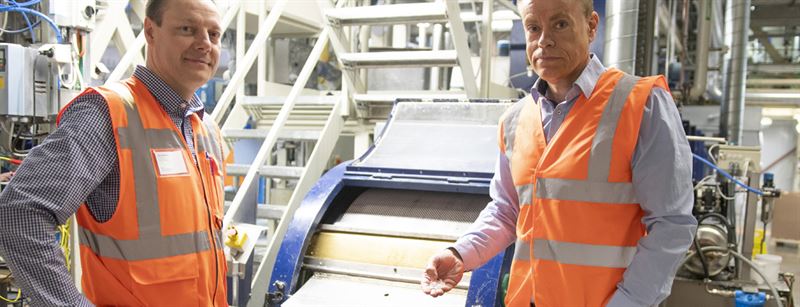It is a cold winter afternoon in Lempäälä, but people working in the Kiilto Lempäälä factory and offices are enjoying the warmth generated with renewable energy. In spring 2018, Kiilto started to use waste heat generated in adhesive production to heat its plant buildings in Lempäälä. The hybrid system Kiilto is using is apparently the first of its kind in Europe. Experiences from the first year of use have shown that the high expectations set for the system have been exceeded. Now, the aim is to expand the use of the proven system.
Kiilto has used waste heat before, however, it expected benefits to multiply as a result of the new hybrid system produced by Calefa Oy. The goal of the massive project was to gain significant benefits.
“We reached, even exceeded, the expectations that we set for the system. The system has operated without interruption from the start and our total energy consumption has decreased by 14 per cent after its deployment. Currently, we are using waste heat to heat our Lempäälä production plant and its domestic water. A similar amount of energy would be sufficient to heat almost 180 detached houses. We have saved some EUR 80,000 in heating costs”, says Mikko Viljanmaa, deputy managing director of Kiilto (on the right side of the picture).
Positive impact on the whole production process
Kiilto uses Calefa’s hybrid system, which utilises many different energy sources: waste heat, ground source heating and cooling. Heat wells drilled by Rototec Oy act as a heat store for any excess waste heat.
“The hybrid system has increased the cooling power and evened out the temperature of cooling water. As a result, we have been able to increase our production capacity, stabilise our production plans and make the quality of our production more even”, says Vesa Juhannusvuori, technical manager at Kiilto (on the left side of the picture.
Kiilto wants to be the environmental leader in its field
Kiilto wants to be a bold leader in environmental development in its sector by means of concrete actions and new solutions.
“Waste heat used by a hybrid system is comprised of almost free energy and reduces our CO2emissions by 310 tons annually. We are continuously thinking of what we could do better for our environment, and we always want to put new ideas to the test. We started to test this hybrid system, which most likely is not used anywhere else in Europe – and it was worth it. We will deploy a similar system in our hot melt adhesive production during autumn 2019. It produces savings of roughly EUR 50,000 a year in heating costs and reduces our CO2 emissions by 175 tons”, Viljanmaa says.
